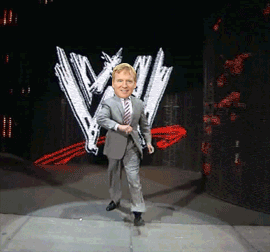http://mmqb.si.com/mmqb/2017/03/23/oakland-raiders-las-vegas-relocation-nfl-owner-meetings
The Raiders’ Road to Vegas Relocation Appears All Clear
NFL owners are preparing to vote on the issue at next week’s league meetings. Here’s a look at how Mark Davis got it to this point, and what’s ahead
by Albert Breer
Photo: Lachlan Cunningham/Getty Images
Decades ago, the late Raiders owner Al Davis ruminated about wanting to relocate his team to Las Vegas. And it turned out that was the one creek where he couldn’t swim upstream.
Too seedy. Too much gambling. Too much mafia. Too far from the NFL’s ideals.
It was too far to go for even the ultimate renegade owner, the one who once sued the NFL to kick open the door to Los Angeles, only to return to Oakland 13 years later.
That’s why when I asked around over the past week about Davis’s son, Mark, trying to move the team there now, what caught my attention most was the lack of concern over the stigma of Sin City among team owners, presidents and those at 345 Park. In most cases, in fact, I had to bring it up for it even to be a topic of conversation.
Times have changed, and what was once a big question simply isn’t one anymore.
“From a gambling standpoint? That’s a joke to even say that’d be a problem,” said one AFC owner. “That was an issue decades ago. Now? Sports gambling is going to be legal. We might as well embrace it and become part of the solution, rather than fight it. It’s in everyone’s best interests for it to be above-board.”
Said an NFC owner: “The first question, naturally, is going to be about gambling. But any of us can pull our phones out of our pockets and place a bet right now. [The concern] is not 100 percent put to bed, but it’s relatively put to bed, just because of technology today.”
I already detailed the relocation fee ($325 million to $375 million), and the one owner who feels the Raiders will be better off in Vegas than the Chargers are in L.A.
Today we’ll look at the varied elements to this story ahead of next week’s expected vote. One ownership source told me Tuesday that he believes the Raiders and Davis have 27 or 28 votes. A high-level source with another team said his belief is that if the league senses Davis won’t get the necessary 24, the vote likely would be pushed to May, before adding that he fully expects a vote.
So here are 10 things important to know about this process...
• Oakland’s failure > Vegas’ potential. The league doesn’t want to leave Oakland. Most owners don’t either. “If this was apples to apples,” said one NFC team president, “they wouldn’t be going.” It’s not apples to apples. Oakland, for very legitimate reasons, has chosen to back the A’s stadium effort over the Raiders’.
And the A’s control the Coliseum lease well into the 2020s. Which means Davis not only doesn’t have the public money he’s getting in Vegas at home, but also doesn’t have the land. My feeling is owners would be inclined to stop the Raiders from abandoning the vibrant Bay Area if there were two legit options here. There aren’t.
• Oakland becomes an attractive market … for someone. Ideally for the NFL, Mark Zuckerberg or Larry Ellison would buy the Raiders and begin building an East Bay football palace. With the Niners in down Santa Clara, plenty in NFL circles loved the Raiders’ potential to mine the North and East Bay.
That opportunity could be there for someone else. “[Zuckerberg and Ellison] are just the third parties,” said another NFC owner. “You never know what’ll happen internally. For a team that’s struggling in a particular market and looking for a solution, Oakland may be a good one.” There is question over whether West Coast markets are equipped to support two NFL teams, but the wealth, diversity and growth of the Bay Area will intrigue.
• Davis is, in essence, getting an ownership partner. For years other owners and league officials have tried to nudge Davis to take on a full partner, like Ellison, with the capital to invest in growing the market. Davis steadfastly has resisted. This move solves that.
“He’s very averse to bringing in an ownership partner,” said one NFC executive. “So the City of Las Vegas becomes his partner. He gets a stadium partner without having to take on an equity partner.” The result is it’ll be easier to maximize Vegas, given the circumstances, than it was Oakland.
• What’s in the lease? This is an important, unresolved issue for some owners, and why approval may wind up being conditional. And so the question becomes how much the Raiders’ rent will be, and what revenues the team will forgo as part of a deal that put $750 million in public money on Davis’s plate.
• Is Vegas big/wealthy enough? Las Vegas ranks 40th as a TV market. It’s transient. Its economy relies on Americans’ discretionary income, making it susceptible in a downturn. And it’s long been among the top cities in foreclosures per capita.
These concerns outrank the gambling issue by a mile, as does the fear that the Raiders could be pulling up stakes again in 20 years. And those concerns come into focus with the team trying to move its premium product (suites, club seats, etc.).
• Where does Sheldon Adelson fit in? Adelson, the billionaire casino magnate who pulled out of a deal with the Raiders, was at the Super Bowl, and word is he privately said he wouldn’t stand in the way of the team moving forward without him.
But his presence looms large in Vegas, and therein lies another concern.
If the business community views the Raiders as having crossed Adelson, will those people be reluctant to partner with the team? “He’ll scare some people, and other people won’t be scared,” said the AFC owner. “But money was the deal-breaker, and Mark got the money back in a week.”
• Who fills the Adelson void? Part of Vegas’s willingness to contribute $750 million to this project is the belief a windfall will come during the 355 days when NFL football is not played in the venue. The city can attract a show, as you might’ve heard. So who runs those events, and the business of the stadium? That was going to be Adelson, who was attracted in the first place by the potential a Vegas football stadium had in so many non-football ways.
Word is, the Raiders (and not a third party) will control all of it, the way the Cowboys do at AT&T Stadium (the Viking are an example of a team that went the other way, with SMG running most non-NFL events at US Bank Stadium), which would mean adding a whole bunch of new staff.
• The Raiders’ brand solves problems. There’s a reason why the Raiders are perfect for Vegas that cuts beyond the “outlaw” thing. Their brand is national, so physical location matters less for them.
The hope is that their pockets of fans in Southern and Northern California will travel, the same way the L.A. fan base they have would take the old Al Davis Southwest route to Oakland over the past two decades. It may not help much with the premium product, but it will help fill the stadium.
• A destination for the Other 31. We don’t need to spend much time here. It’s easy. If you’re a fan of another team who likes to annually road-trip to an away game, and Vegas is on the schedule, you’ll probably consider going. That helps the Vegas cause.
• The next three years. This isn’t a deal-breaker, but owners will want to know more about the readiness of UNLV’s Sam Boyd Stadium—it would need significant upgrades to be NFL compliant—to serve as a temporary facility.
The Raiders will play in Oakland in 2017 and have said they’ll stay for 2018, too, but the league likely will want to have an escape hatch if things go poorly this fall, and the Raiders may want to spend the year before their new stadium opens (in 2020) in Vegas anyway.
Now, one thing I should say: Some could push to move the vote to May. But there’s not much of a belief that anything would change in the weeks between the annual meeting and the spring meeting, and going past that could open the risk that the $750 million goes away.
And Bank of America rushing to take the financing baton from Goldman and Adelson is proof to most owners of the viability of the project.
So chances are Davis’s peers give him his victory here. As I wrote in October, over the course of 2016 the Raiders’ quirky owner has earned a lot of respect in the rooms that will be filled next week with voters. One of them went so far on Tuesday to say that, based on the record amount of public funding he’s secured, and the 12-win team he fielded, Davis should’ve been a candidate for executive of the year.
Davis took one tough situation (Oakland) that was compounded by a difficult loss (Los Angeles) and came up with a pretty cool solution. And the league likely will reward him for it.
“My general sense is no one is opposed to it, but it’s hard to find a lot of people that are really
that in favor,” said an executive for an NFC team. “It’s not negative, it’s just that most are like, ‘This is perfectly fine.’ … The bottom line is Oakland has no plan.”
And so with most of these guys viewing Vegas in a very different light than they once did, the door that Al Davis could never crack is swinging wide open for his son.



